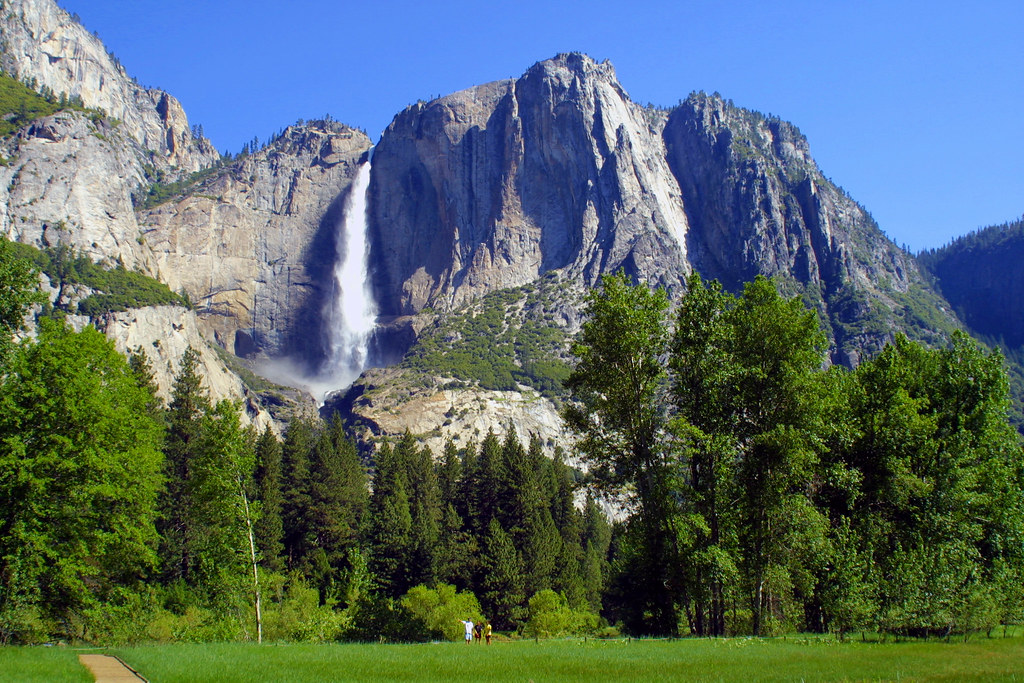
The National Park Service (NPS) has recently faced a wave of staff layoffs, raising concerns about the future of park maintenance, visitor services and employment opportunities. California is home to several national parks, including Joshua Tree, Yosemite and Sequoia, and these staffing cuts impact Point Loma Nazarene University students who rely on these parks for recreation, research and job opportunities.
The NPS has struggled with funding shortfalls for years, but recent budget constraints have forced deeper cuts, including a significant reduction in park staffing. The Department of the Interior, which oversees the NPS, cited financial limitations and shifting priorities as reasons for the layoffs. However, according to a 2025 Associated Press report, the cuts are a part of President Trump’s administration’s broader push to downsize the federal government. The move has raised concerns among conservationists about how parks will maintain essential services and protect natural resources with fewer employees on staff, according to the report.
For PLNU students, the layoffs could have direct consequences, as many frequently visit national parks for hiking, camping and research projects. With staffing shortages, some parks may face reduced hours, closures of visitor centers or delays in trail maintenance.
“Removing one thousand jobs just as the busy spring and summer seasons are about to begin means that many parks are adjusting their plans, from reducing hours at visitor centers to access to various areas of parks potentially being closed altogether,” Amy Nantkes, PLNU professor of political science, said.
According to Nantkes, reduced staff could mean fewer rangers to provide information or maintain trails, which may impact visitor safety and experiences.
Some students are concerned about their safety when it comes to visiting the parks. Avery Thompson, a fourth-year psychology major and member of the Loma Outside club, a group at PLNU that encourages students to develop leadership and community through outdoor activities, said that the absence of park rangers could pose safety risks.
“Safety is definitely one of my main concerns because the park rangers have so many jobs,” Thompson said. “They are cleaning up. They’re dealing with safety; they’re doing traffic; they’re dealing with everything in the parks.”
When it comes to future visits, some students expect even greater challenges.
“In the future, I would not be too surprised if there was less availability regarding campsites/lodging in the parks, with the lack of staff to maintain things,” Brooke Inman, a third-year kinesiology major and frequent national park visitor, said. “I also could imagine there being longer lines to get into the park, with limited amounts of lodging, requiring people to come in and out for day trips.”
Beyond recreation, federal staff cuts may impact students seeking internships or careers with the NPS. According to PLNU’s academic catalog, the university offers degrees in environmental science and environmental studies, which prepare students for careers in conservation, environmental advocacy and sustainability.
PLNU’s website states that alumni have pursued roles in conservation biology, environmental analysis and wildlife biology, with some working for agencies like the California Department of Fish and Wildlife. The staff reductions could mean fewer opportunities for students to gain field experience and secure internships that build careers in environmental science.
The layoffs arrived when national parks were seeing increased visitation, especially as more people turned to outdoor activities for recreation. Nearly 312 million people visited national parks in 2023, a number that has steadily risen in recent years. National parks also hold one of the highest trust ratings among government agencies, with a 76% approval rating, compared to 38% for the IRS, according to a Pew Research Center study. This highlights the value the public places on the NPS and its role in managing 433 parks, monuments and historic sites across the country.
In 2023, visitors to NPS sites contributed $26.4 billion in local spending, supporting more than 400,000 jobs, according to the NPS. Many small towns near national parks depend on tourism for their economy, meaning fewer park visitors due to staffing shortages could lead to financial hardships for these communities. Congress must pass appropriations by March 14 to fund the government, making this a key moment for park advocates to push for long-term funding solutions.
Some advocacy groups are calling on Congress to provide increased funding to the NPS to prevent further layoffs. The National Parks Conservation Association has urged lawmakers to prioritize park funding to ensure these public lands remain accessible and well-maintained for future generations. While no immediate solutions have been announced, there is growing pressure for policymakers to address the issue.
For now, PLNU students who rely on national parks for outdoor recreation and career opportunities may need to adapt to the changing landscape. However, many remain hopeful that raising awareness of the issue will spark action.
“I think students could advocate for the NPS by sharing their own personal experiences in national parks and giving feedback on the importance of protecting them, ensuring they receive the proper attention and care they were designed to have,” Inman said.
As the conversation around NPS funding unfolds, Nantkes recommends that students and faculty continue to closely monitor the situation and do what they can on their end.
“In the meantime, students who want to advocate for funding the NPS should call and email their members of Congress directly and can join groups that support the parks, like the National Parks Conservation Association,” Nantkes said. “It does make a difference that our legislators hear from us.”
